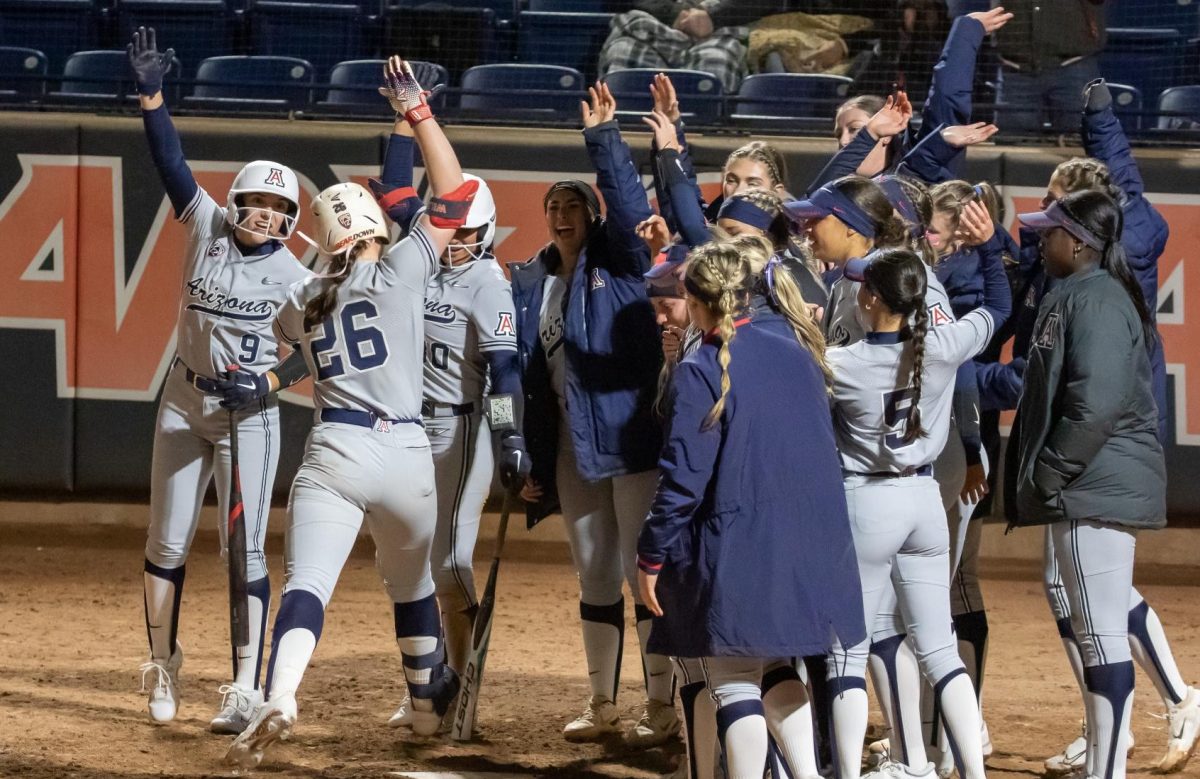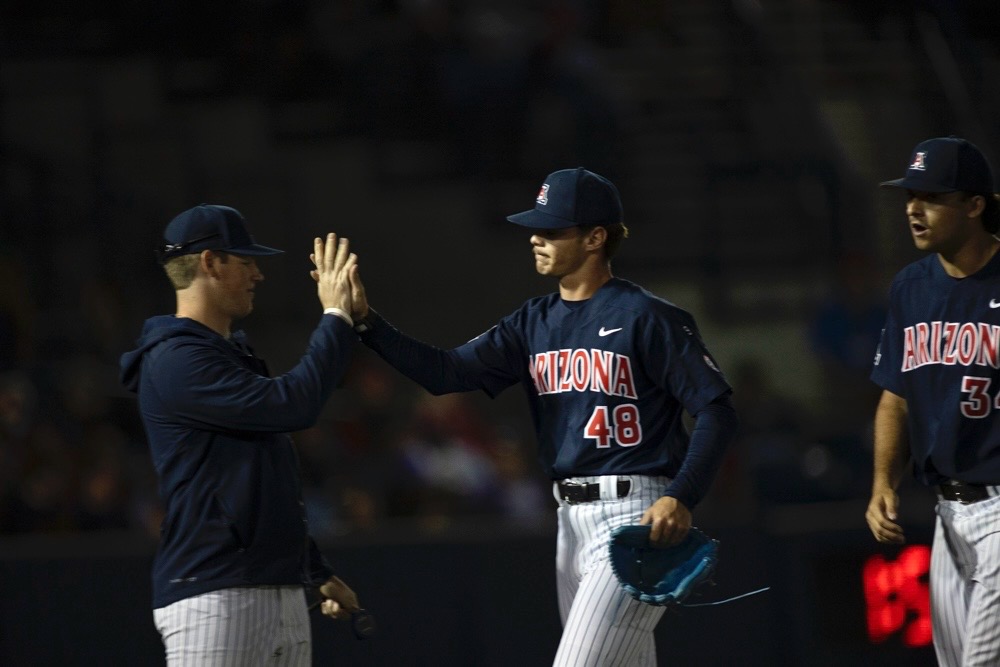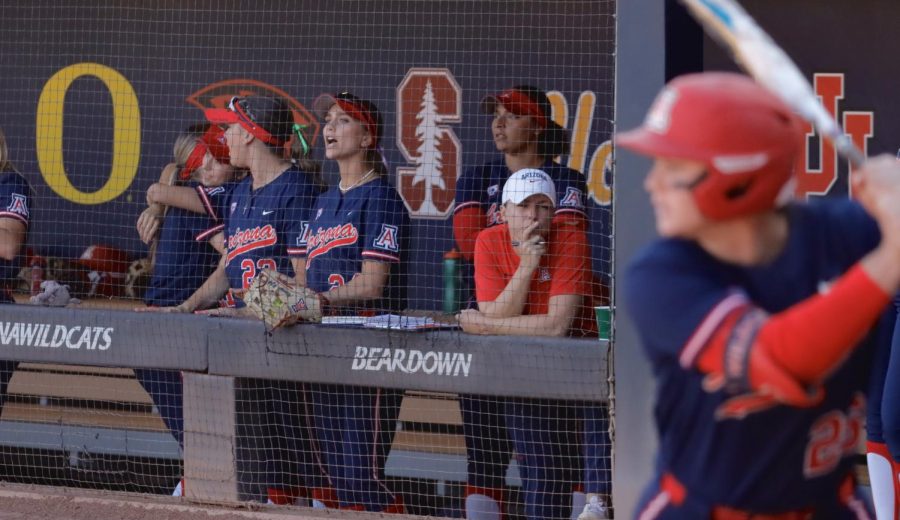The NCAA keeps biting off more than it can chew.
Beginning this year, men’s basketball teams must submit to a rule that says “”during a two-year period before a prospective student-athlete’s anticipated enrollment and a two-year period after the student-athlete’s actual enrollment, an institution shall not employ an individual associated with the prospective student-athlete in any athletics department non-coaching staff position.””
That NCAA-speak is intended to stop schools from making package deals with high school recruits by hiring a person the prospect is associated with, said Bill Morgan, Arizona’s Assistant Director of Athletics for Administrative Services and Compliance.
While meant to curb financial favors, such a minuscule change to the rulebook doesn’t help those the NCAA is attempting to protect — basketball teams and student athletes.
However well intended it may be, here are a few reasons why the new rule hurts college basketball.
Trust and loyalty lost
In the NCAA legislation, the exact wording used to describe the associate of the potential recruit is “”not limited to, parents, legal guardians, handlers, personal trainers and coaches.””
From there, the definition gets shaky.
Morgan said it includes people associated with the prospect “”whether they are a high school coach or AAU coach … principal, whatever, some association — friend.””
Friend?
Sure, it’s understandable what the goal is: “”It’s aimed at situations where institutions are, for lack of a better term, doing financial favors for (prospects),”” Morgan said. “”That’s essentially the bottom line.””
But when recruiting kids who could be as young as 16-years-old, why not allow them to attend a school that has just hired someone they trust — a friend.
It’s hard to believe head coaches would hire a distraction to their administrative staff. It’s also hard to believe they’d take someone under-qualified simply so the school could grab a recruit.
And if the hire is only made because it brings a program-changing recruit, that isn’t necessarily a bad thing.
Coaches must weigh the risk of hiring someone under-qualified versus the reward of earning the commitment of a prospect. And if they decide to make the hire, is giving someone a job considered doing them a favor?
In the end, if a head coach and a potential recruit both trust a recently hired non-coach, one that was associated with the recruit, apparently that shared loyalty isn’t good enough to bring the recruit to that head coach’s program.
If there’s no harm intended, only a wanted bond of trust and loyalty between the three parties — coach, recruit and associate — there shouldn’t be a rule to stop the three from uniting.
Recruiting your backyard
Summer basketball camps will be the most fragile places for rules violations. Hiring local coaches to lead Arizona-related camps would mean the Wildcats can’t pull any recruits with association with those coaches.
“”It’s made it very difficult to figure out who you’re going to hire,”” Morgan said of the summer camps. “”You used to be able to hire high school coaches from around the area.
“”Most folks aren’t willing to take the chance that some kid won’t blossom in (a local high school) program and now you can’t recruit them,”” he added, “”so you just don’t hire the coaches.””
Let’s say that a local high school coach — someone that is hired by a university to run a camp — mentors an under-the-radar recruit into a late-blossoming star toward the end of the athlete’s senior year. Let’s say it happens in Tucson, in Sean Miller’s backyard.
Too bad. Miller would only be able to watch another big-name program poach a recruit right before his eyes — all because of a silly rule.
More rules, less focus
With more petty rules in place, athletic departments limited in resources and employees won’t be able to keep tabs on making sure bigger violations aren’t brewing.
If Arizona’s athletic department had time to keep a more watchful eye on what was happening in McKale Center during 2008’s Cactus Classic, maybe it wouldn’t have violated rules that led to a number of sanctions.
Adding this rule, among others, creates more room for error in both the number of rules to be broken and the chance that larger violations go unnoticed. Morgan said there are more related rules coming in order to “”limit the number of non-coaching positions.””
Here’s an idea: simplify the rulebook, and maybe compliance departments like Morgan’s will have an easier time focusing on the big picture. They would have more time to focus on stopping money from being passed under the table rather than looking at likely harmless administrative actions.
The NCAA is only complicating how schools monitor themselves, creating a false sense that more rules means less damage done. And by doing so, it’s insinuating that trust and loyalty aren’t developmental traits that it’s looking for in kids when they commit to a basketball program.
So what are they looking for?
— Kevin Zimmerman is a journalism senior. He can be reached at sports@wildcat.arizona.edu.








